UNC Health Neonatal Physical Therapy Fellowship

UNC Hospital’s Neonatal Physical Therapy Fellowship is dedicated to supporting UNC Health’s mission to improve the health and wellbeing of North Carolinians and others whom we serve. Graduated fellows, equipped with a broad understanding of the complexities and challenges faced by neonatal patients and families, will have the experience and skill necessary to deliver efficient and effective evidence based care to improve the health and wellbeing of the newborn or infant requiring intensive care. Aligning with UNC Health’s vision to be the nation’s leading public academic health care system, this fellowship will provide the academic and clinical education necessary to graduate experts in the practice of neonatal physical therapy who excel in leading clinical teams, teaching, developing other professionals and contributing to research. Recognizing the advanced knowledge and experience needed in Neonatal Physical Therapy, program faculty and fellows seek to share their knowledge and skills widely to provide compassionate care and improve developmental and health outcomes for this vulnerable patient population.
Fellowship Program Mission
UNC Hospital’s Neonatal Physical Therapy Fellowship is dedicated to supporting UNC Health’s mission to improve the health and wellbeing of North Carolinians and others whom we serve. Graduated fellows, equipped with a broad understanding of the complexities and challenges faced by neonatal patients and families, will have the experience and skill necessary to deliver efficient and effective evidence based care to improve the health and wellbeing of the newborn or infant requiring intensive care.
Fellowship Program Philosophy
The multidisciplinary faculty of the program represent varied areas of expertise and are committed to developing fellows who are recognized leaders within the field of neonatal physical therapy. Fellows will develop excellence in examination, diagnosis, intervention, consultation, teaching and the integration of best evidence into the patient care they provide within Neonatology.
Fellows who successfully complete the program will be prepared for independent clinical practice in high-risk infant settings.
Program Goals
Graduate fellows who are recognized leaders within neonatal physical therapy.
- Graduates contribute to the neonatal PT body of knowledge
- Fellows complete at least 12 hours of community service related to infant development
- Fellows lead at least 3 evidence based presentations on neonatal physical therapy.
The fellowship program supports the mission of UNC Health Care.
- Educate fellows to improve the health and well-being of the people of North Carolina
- Fellow provides education to DPT students
The fellowship program maintains ABPTRFE accreditation.
- Initial accreditation granted and renewed
- Annual reports demonstrate compliance with ABPTRFE quality standards
- Fellow clinical performance meets department standard
- Continuous program improvement (curricular and/or operational)
The program is sustainable.
- Attract qualified applicants
- Maintain adequate size faculty of clinical experts for mentoring and didactic instruction
- Maintain sufficient administrative support
Fellows demonstrate proficiency in knowledge and skill required for specialist neonatal clinical practice.
- Fellows achieve program outcomes
Fellows demonstrate excellence in examination, diagnosis, intervention, consultation, teaching, and the integration of best evidence into the patient care they provide within neonatology.
- Fellows will achieve a passing score on all "live" patient examination demonstrating advanced clinical reasoning skills and ability to effectively collaborate with the multidisciplinary team.
- Fellows will successfully complete all didactic modules (80%) and written examinations (80%) requiring advanced synthesis of clinical knowledge, relevant research and developmental theory.
- Fellows will achieve satisfactory or superior scores on public presentation and teaching engagements as assessed by each programs' learners and program faculty.
Program Outcomes
- The Neonatal Fellow will be a recognized leader within neonatal physical therapy upon graduation
- The Fellow will demonstrate proficiency in knowledge and skill required for specialist neonatal clinical practice.
- The Fellow will demonstrate excellence in examination, diagnosis, intervention, consultation, teaching, and the integration of best evidence into the patient care they provide within neonatology
- The Fellow will critically appraise and apply evidence relevant to the practice of physical therapy in the population of infants at high risk for developmental delays and their families.
- The Fellow will possess the administrative skills and fiscal understanding of hospital systems, and newborn/infant intensive care, necessary to establish efficient and cost effective programming for newborns and infants requiring intensive care across the continuum of care.
- The Fellow will partner with other health care providers in the follow up of infants at risk for developmental delay by developing expertise in clinical and standardized assessment of motor development.
Curriculum
The program’s curriculum is designed in modules that address each area of the Description of Fellowship Practice. These areas include, but are not limited to: Medical Issues and Interventions in the NICU, Embryologic and Fetal Development, Preterm Infant Development, Full-term Infant Development, Early Intervention and Follow-Up, Introduction to Infant Feeding, Environment of Care, Evidence-Based Practice in Neonatology, Meeting and Assessing the Family, Scientific Inquiry, Administration, Teaching and Learning, and Intervention-Based Modules. Didactic work complements clinical instruction in a concurrent fashion and is administered through a combination of independent study and face-to-face instruction. Written assignments, written examinations, live patient examinations and self-assessments provide the fellow with regular benchmarks to ensure their learning progresses throughout the duration of the program.
Requirements
The core components of the fellowship program include: neonatal clinical practice, mentored clinical practice, didactic activities, written patient case reports, research, teaching and professional community service. Fellows must successfully complete each didactic module, two live patient exams, and two written exams and complete a research project.
Fellow Schedule
Fellows will practice at UNC Children’s Hospital for 30 hours per week. The fellow will also have mentored clinical work and didactic learning activities each week. Given the scope of fellow learning opportunities, fellows should expect to spend 50-60 hours per week completing program activities. Some holiday, weekend, and evening coverage is expected.
Salary, Tuition and Benefits
Fellows are full-time employees (with competitive salary and benefits). Fellows also receive Paid Time Off for vacation, sick and holiday time off from clinic work. There is no tuition associated with the program.
Eligibility
Applicants must be residents of the U.S. and have NC PT licensure. Applicants must be Board Certified in Pediatrics (PCS), and/or have graduated from an ABPTRFE-accredited pediatric residency program. Pediatric acute care experience is preferred.
If you have not completed a residency and do not hold the PCS credentials, you may apply to our Path to Fellowship Program. The Path to Fellowship Program is a 24 month curriculum in which participants complete our pediatric residency in year one of the program, followed by our fellowship in year two.
![]() Program Accreditation
Program Accreditation

The UNC Health Neonatal Physical Therapy Fellowship program is accredited by the American Board of Physical Therapy Residency and Fellowship Education as a post-professional fellowship program for physical therapists in neonatal care.
Program Outcomes
- 100% successful graduation of fellows
- 100% of graduates are currently employed in a NICU setting
- 2021 graduate completed a presentation at a national conference
- 2022 graduate completed a presentation at the APTA NC State Conference
Application
Applications for the 2025-2026 cohort open October 1 with a deadline of December 1, 2024. Application will be in RF-PTCAS.
We will invite strong candidates for an on-site interview on Friday, January 10, 2025.
Mentorship
You will learn from mentors who are experts in neonatal therapy with a variety of specialty certifications and training. During weekly mentored time, the fellow evaluates and treats patients with a mentor. Individualized instruction and feedback is provided during each mentored session. The fellow’s mentor rotates regularly to provide a variety of perspectives and expertise across the neonatal program.
Mentors
 Kristel Maes, PT, DPT, Dip MDT, Program Director
Kristel Maes, PT, DPT, Dip MDT, Program Director
Undergraduate school: KULeuven Belgium
Graduate school: KULeuven Belgium and University of North Carolina at Chapel Hill
Professional interest: My clinical interest is spine. In my current position as Administrator of our post-graduate programs I have a passion for education and preparing the future generation of therapists.
Why I serve as a mentor: Research has shown that having a professional mentor is beneficial to advancing your career. From personal experience, I value the benefit of surrounding myself with others who can give me a different perspective on a patient case, problem or project. By serving as a mentor I hope to pass on my knowledge and support a resident’s professional growth.
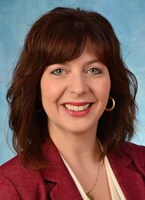 Dana McCarty, PT, DPT, Board Certified Clinical Specialist in Pediatrics, Program Coordinator
Dana McCarty, PT, DPT, Board Certified Clinical Specialist in Pediatrics, Program Coordinator
Undergraduate school: Columbia College
Graduate school: University of South Carolina
Professional interest: Neonatal physical therapy, infant-parent interaction and pediatric PT education.
Why I serve as a mentor: As a graduate of a pediatric PT residency program, I understand the need for mentoring guidance, especially in the first few years of clinical practice in pediatrics. I am grateful for all that my expert mentors have taught and continue to teach me. My commitment to mentoring the next generation of PTs is also born out of a great need to develop specialist and sub-specialist pediatric and neonatal PTs.
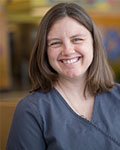 Kerry Blazek, PT, DPT, CNT, Board Certified Clinical Specialist in Pediatrics
Kerry Blazek, PT, DPT, CNT, Board Certified Clinical Specialist in Pediatrics
Undergraduate school: Binghamton University
Graduate school: Duke University
Professional interest: Neonatal Therapy, Pediatrics and Clinical Education.
Why I serve as a mentor: Mentoring is a two way street. When you mentor others, you gain critical skills to improve as a leader. It reinforces your knowledge and helps keep you up to date on current practices and resources. Also, by helping train others in this specialty area of practice, we can serve many more patients and families. Mentoring can be equally as beneficial as it is fulfilling.
Kristen Montgomery, MS, PT
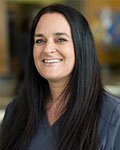 Undergraduate school: Boston University, Boston MA
Undergraduate school: Boston University, Boston MA
Graduate school: Boston University, Boston MA
Professional interest: Pediatric acute care; critical care of the pediatric patient throughout the ages from neonates to teenagers.
Why I serve as a mentor:Being a mentor allows me to share my experience and knowledge with the incoming generation of professionals while also ensuring I remain on top of the current research as our care for pediatric patients evolves over time. I see it as an exchange of knowledge between professionals to improve the services we provide. Ultimately, the collaboration between mentor and fellow will lead to a higher quality of care and improved outcomes for our patients.
Catherine Cunningham, PT, DPT / Board Certified Pediatric Clinical Specialist
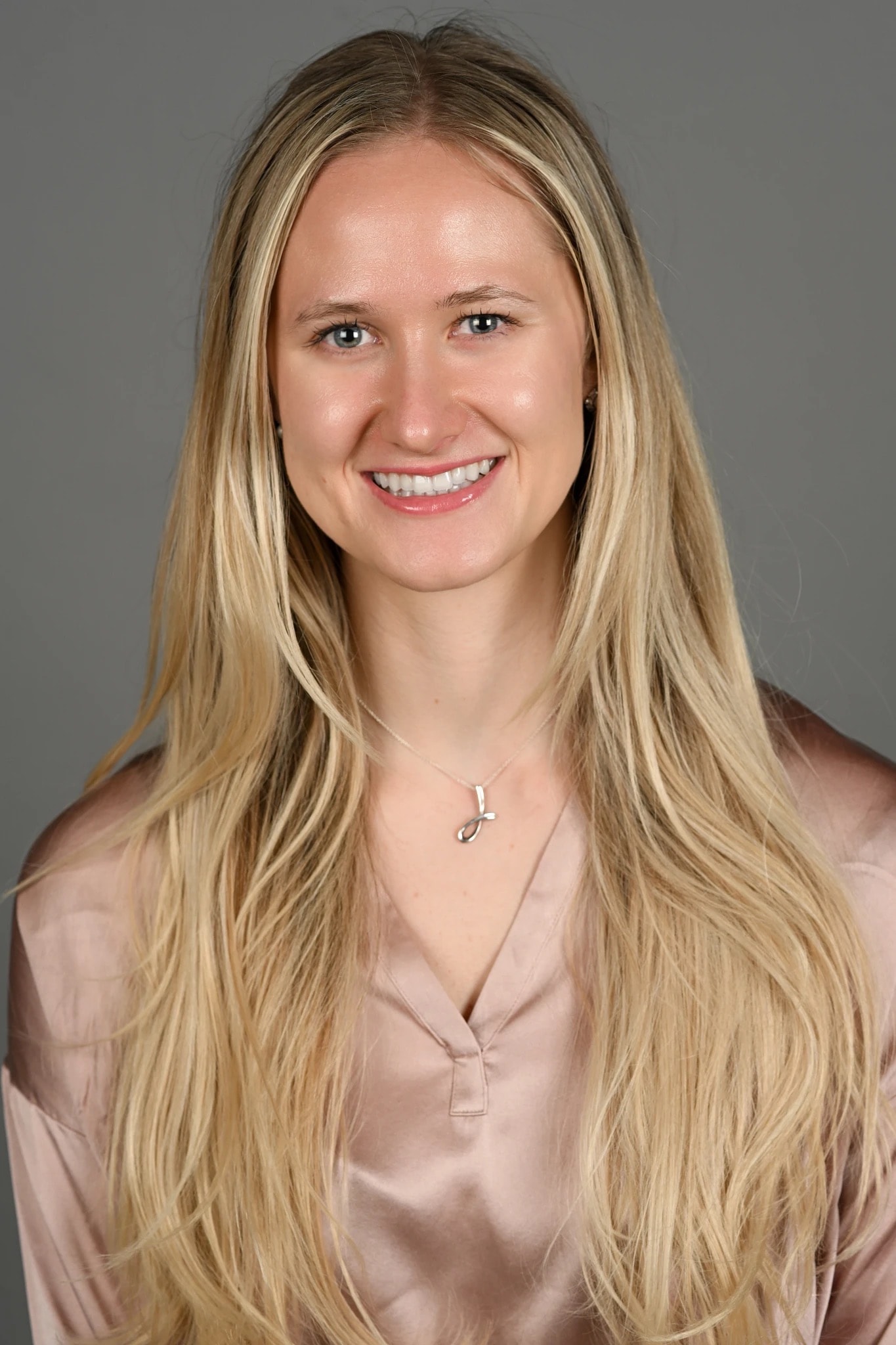 Undergraduate school: Marquette University - Bachelors in Biomedical Sciences
Undergraduate school: Marquette University - Bachelors in Biomedical Sciences
Graduate school: Marquette University - Doctor of Physical Therapy
Professional interest: Neonatal physical therapy; preterm infant development, development of critically ill infant, family-centered care. Additionally neonatal and pediatric physical therapy education and research.
Why I serve as a mentor: As a graduate of UNC's Pediatric Physical Therapy Residency and Neonatal Physical Therapy Fellowship, I was fortunate to have strong mentorship that molded my clinical practice and provided invaluable learning opportunities. I strive to give back to the program that provided me with such skills and guidance. Training and educating new neonatal therapists is an integral way of providing developmental care within the NICU setting. Mentoring provides opportunity for shared knowledge, benefiting the mentor and the mentee.
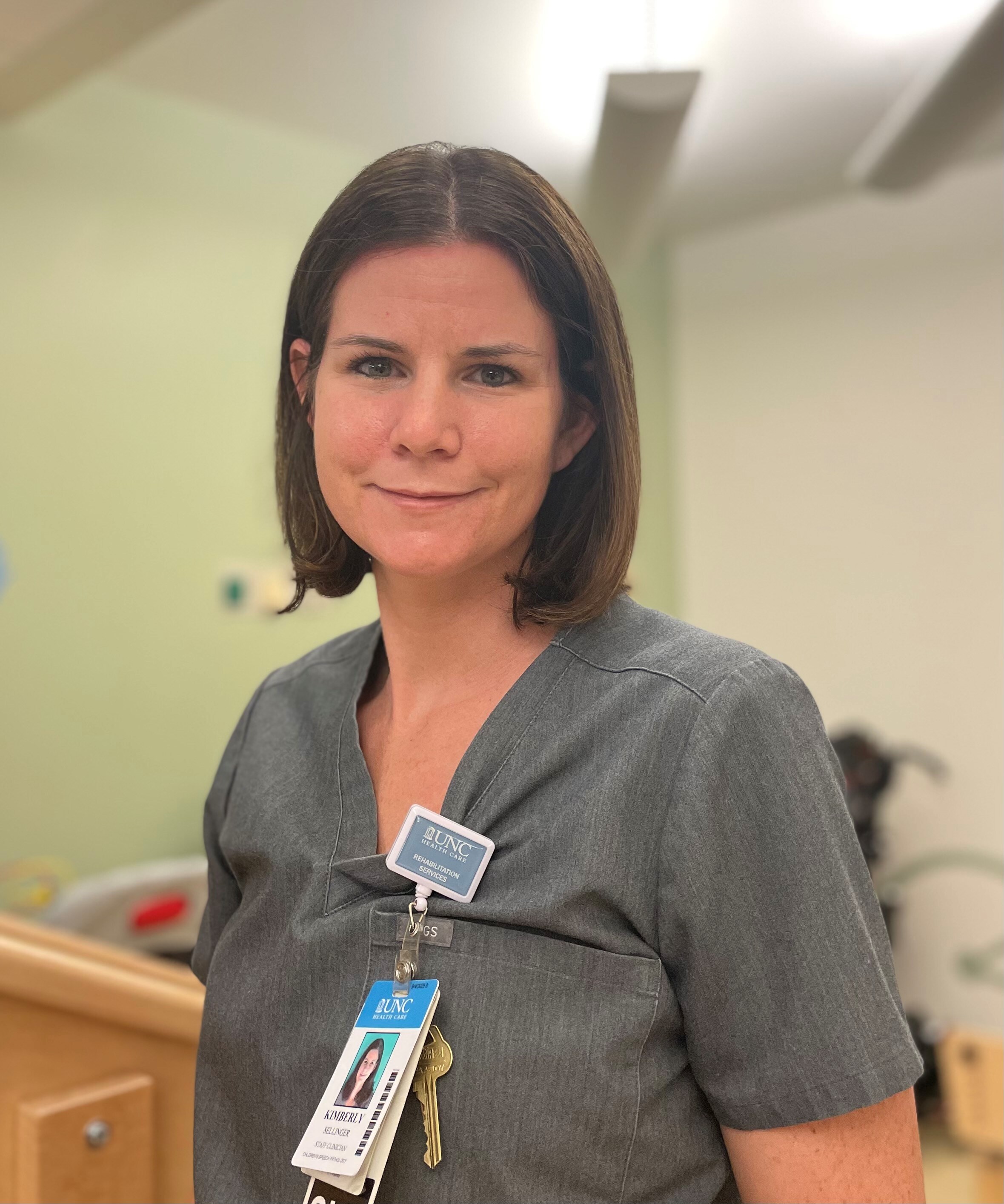 Kim Sellinger, MS, CCC-SLP
Kim Sellinger, MS, CCC-SLP
Graduate school: University of North Carolina - Chapel Hill
Professional interest: I currently practice as an acute care pediatric speech/language pathologist with a primary focus on feeding and swallowing disorders. While I treat patients in all areas of the hospital, much of my caseload is in the NICU. I am particularly interested in pre-feeding interventions to improve transitions to oral feeding, supporting overall development in NICU populations and assessment of long term outcomes.
Why I serve as a mentor: I became a mentor for this fellowship to promote increased professional training to improve developmental outcomes of NICU patients. I lead the feeding modules as part of a well-rounded experience for our PT NICU fellows. I have also learned how to better support our patients through this interdisciplinary collaboration.
Keri Parker, PT, DPT, CNT, NTMTC, Board Certified Clinical Specialist in Pediatrics
 Undergraduate school: Elon University
Undergraduate school: Elon University
Graduate school: Elon University
Professional interest: My interest and passion lies in neonatal therapy. Particularly in supporting parents and infant interactions to help foster and support best long term outcomes. An additional area of interest is supporting and providing trauma informed care in the NICU setting as a trauma informed professional (TIP). It is known that the number one stressor for both parents and baby is being separated. Family centered developmental care is the focus of UNC Rex NICU that I have had the pleasure to help develop and continually grow.
Why I serve as a mentor: I serve as a mentor to help further the field of neonatal therapy. Neonatal therapy is an advanced practice area and there has not always been the level of support for therapists to receive direct mentoring once out of school. Mentoring is a two way street of shared knowledge. I love to gain further knowledge from the students as much as they gain from me. To be a mentor to the next generation of therapist's also ensures that therapists entering the world of neonatal therapy have the proper training and skills to best support future generations of babies and families.
Meredith Soucie, OTR/L, NTMTC
 Undergraduate school; Elon University
Undergraduate school; Elon University
Graduate school: University of North Carolina - Chapel Hill
Professional interest: Neonatal occupational therapy - I particularly enjoy working with infant’s who have neonatal abstinence syndrome or bronchopulmonary dysplasia diagnoses.
Why I serve as a mentor: I was fortunate to start my NICU career with strong mentorship that formidably shaped my clinical practice. I hope to provide rising neonatal therapists that same support and guidance. Helping clinicians become an integral piece of providing developmental care within the NICU drives my desire to serve as a mentor. In addition, it facilitates furthering my own clinical skills to provide best practice and evidence-based interventions.
Sara Hammond, MSOT, OT/L, CNT, NTMTC
 Undergraduate school: Brevard College
Undergraduate school: Brevard College
Graduate school: University of North Carolina at Chapel Hill
Professional interest: Preterm infant development, development of critically ill infant, family-centered care, developmental care
Why I serve as a mentor: I serve as a mentor to support the growing need for evidence-based, infant-driving and family centered care in the NICU. The NICU PT Fellowship program is a critical way that I can contribute to that end.
Meet Our Fellows
2024-25: Jenny Bosserman PT, DPT
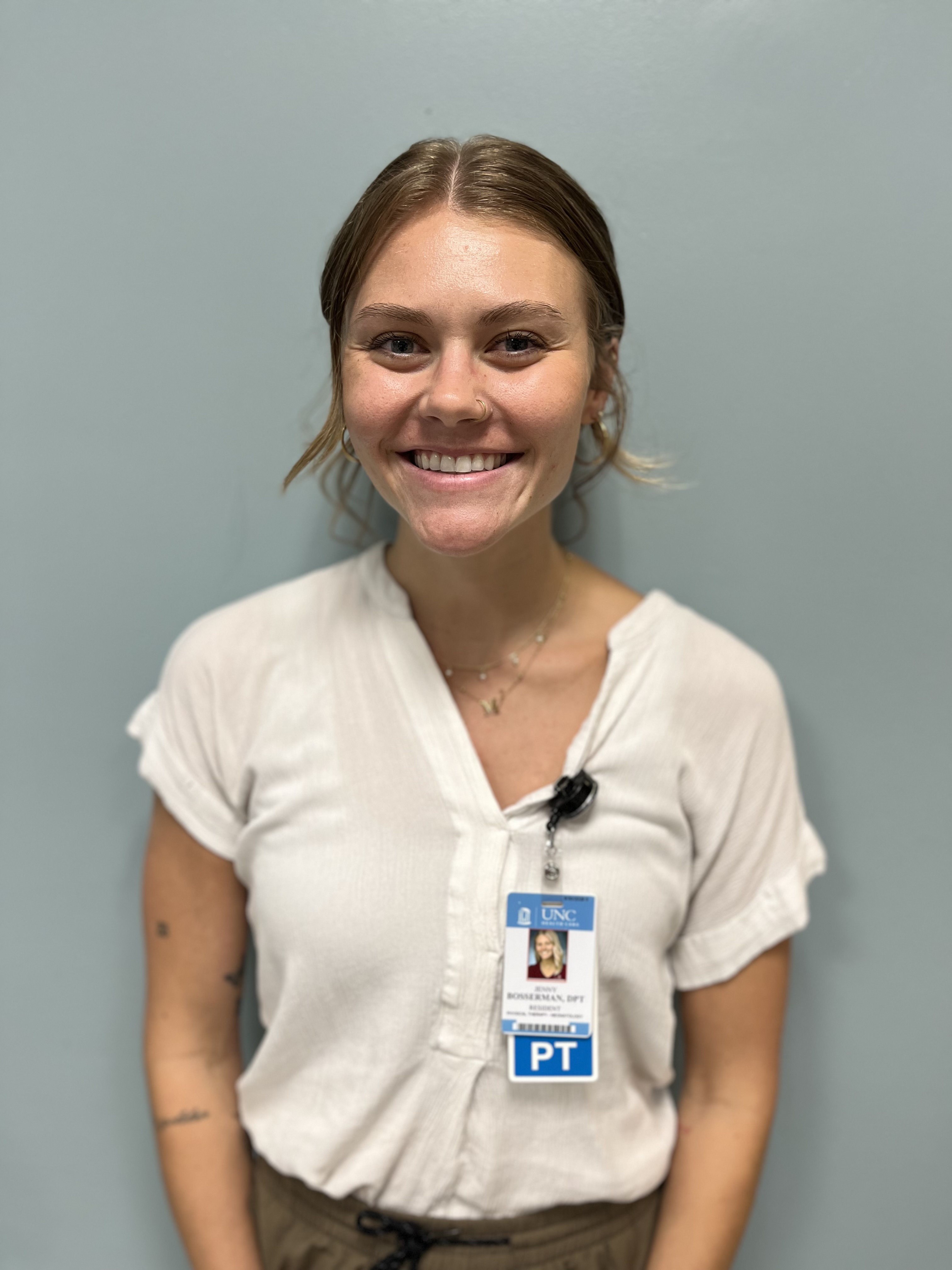 Undergraduate school: University of Mary Washington
Undergraduate school: University of Mary Washington
Graduate school: University of North Carolina at Chapel Hill
Professional interest: Neonatal physical therapy
Why I chose to do a fellowship UNC: The mentorship at UNC is unmatched and I could not wait to return to the triangle!
What I like about Chapel Hill: UNC has a beautiful campus to walk/run around. Franklin street is always a good time and has some great restaurants to check out.
2023-24: Claire Boe, PT, DPT, Board Certified Clinical Specialist in Pediatrics
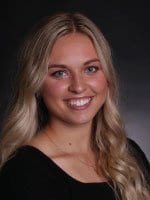
Current employment: Neonatal therapist at UNC Health
Why I chose to do a fellowship program at UNC: I chose UNC because it was the total package for elevating my didactic/clinical knowledge and jumpstarting my career in a specialty field. As a teaching hospital, the opportunities for continuing education, professional development, and mentoring are endless. It is a privilege to collaborate with other highly respected clinicians on the medical team. UNC's NICU PT fellowship program provides a diverse yet comprehensive learning experience in all things NICU. I wanted a program in a level IV NICU that allowed birth through discharge continuity of care. I love the reputation the NICU therapy team has built with the NICU providers and the open relationship we have with the nurses and medical team. In addition to the highly renowned mentorship and clinical practice at UNC, there are also many opportunities for research, leadership, and teaching.
What I like about Chapel Hill, NC: Chapel Hill has a little bit of everything--from big city activities/events to peaceful outdoor adventures. I love the medical community here and the resources available as part of the research triangle. There are so many restaurants, coffee shops, museums, trails, and parks to explore. I appreciate the proximity of the beach and the mountains. The city is full of Tar Heel energy and East Coast charm.
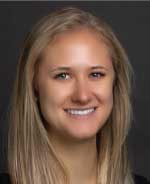
2022-23: Catherine Cunningham, PT, DPT, Board Certified Clinical Specialist in Pediatrics
Current employment: Neonatal therapist at UNC Health
Research:
Blazek K, Cunningham C, LeBlond K, McCarty DB. Implementing, Expanding, and Refining Physical Therapy Practice in the Neonatal Intensive Care Unit. APTA Combined Sections Meeting – Poster Presentation, Boston, MA. February 2024.
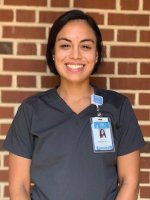 2021-22: Kristen Dragotta-LeBlond, PT, DPT, Board Certified Clinical Specialist in Pediatrics, Certified Neonatal Therapist, Neonatal Touch and Massage Therapist Certified
2021-22: Kristen Dragotta-LeBlond, PT, DPT, Board Certified Clinical Specialist in Pediatrics, Certified Neonatal Therapist, Neonatal Touch and Massage Therapist Certified
Current employment: Neonatal therapist at Duke University Hospital
Research:
McCarty DB, Clary-Williams E, LeBLond KD, Liu T, Zbornik-Thompson T, Ulrich JN and Go MS (2024) Interdisciplinary collaborative eye examinations to protect preterm infant neurodevelopment: a quality improvement project. Front. Psychol. 15:1354033. doi: 10.3389/fpsyg.2024.1354033
Bosserman J, Kelkar S, LeBlond KD, Cassidy J, McCarty DB. Postural Control Measurements to Predict Future Motor Impairment in Preterm Infants: A Systematic Review. Diagnostics. 2023;13(22):3473. Published 2023 Nov 18. doi:10.3390/diagnostics13223473.
Dragotta K and McCarty DB. Commentary on “Reliability of Using a Smartphone Application to Objectify Skull Deformation.” Pediatr Phys Ther. 2022;34(4):471. doi:10.1097/PEP.0000000000000962.
Blazek K, Cunningham C, LeBlond K, McCarty DB. Implementing, Expanding, and Refining Physical Therapy Practice in the Neonatal Intensive Care Unit. APTA Combined Sections Meeting – Poster Presentation, Boston, MA. February 2024.
2020-21: Erika Clary-Williams, PT, DPT, MS, Board Certified Clinical Specialist in Pediatrics

Current employment: Neonatal therapist at Vanderbilt Children’s hospital
Research:
Clary E and McCarty D. Collaborative Eye Exams to Protect the Preemie – Platform Presentation. Academy of Pediatric Physical Therapy Conference, Virtual, November 2021.
McCarty DB, Clary-Williams E, LeBLond KD, Liu T, Zbornik-Thompson T, Ulrich JN and Go MS (2024) Interdisciplinary collaborative eye examinations to protect preterm infant neurodevelopment: a quality improvement project. Front. Psychol. 15:1354033. doi: 10.3389/fpsyg.2024.1354033
McCarty DB, Clary-Williams E, LeBLond KD, Liu T, Zbornik-Thompson T, Ulrich JN and Go MS (2024) Interdisciplinary collaborative eye examinations to protect preterm infant neurodevelopment: a quality improvement project. Front. Psychol. 15:1354033. doi: 10.3389/fpsyg.2024.1354033
Helpful Links
NC Children's Hospital Rehabilitation
NC Children's Hospital Neonatal-Perinatal Medicine
American Board of Physical Therapy Residency and Fellowship Education (ABPTRFE)